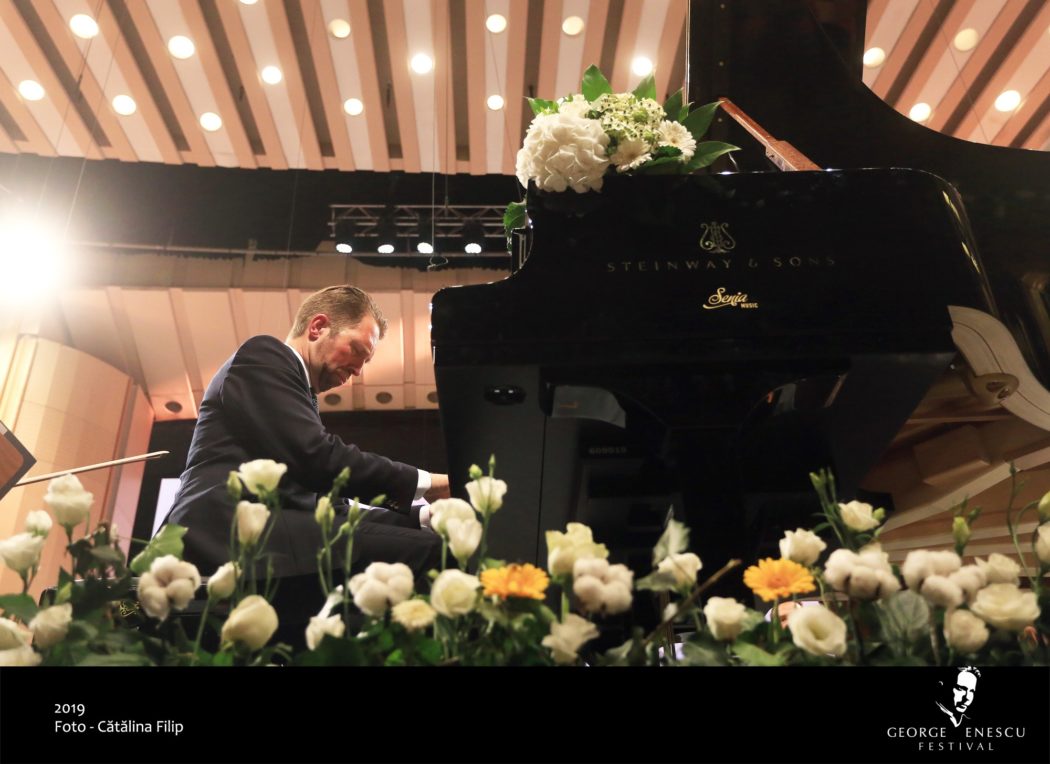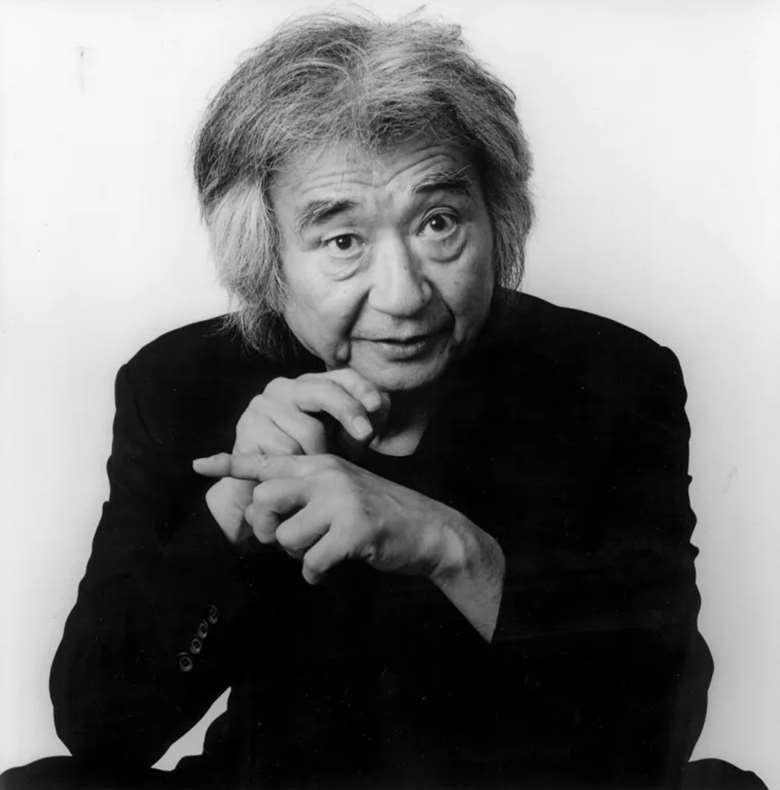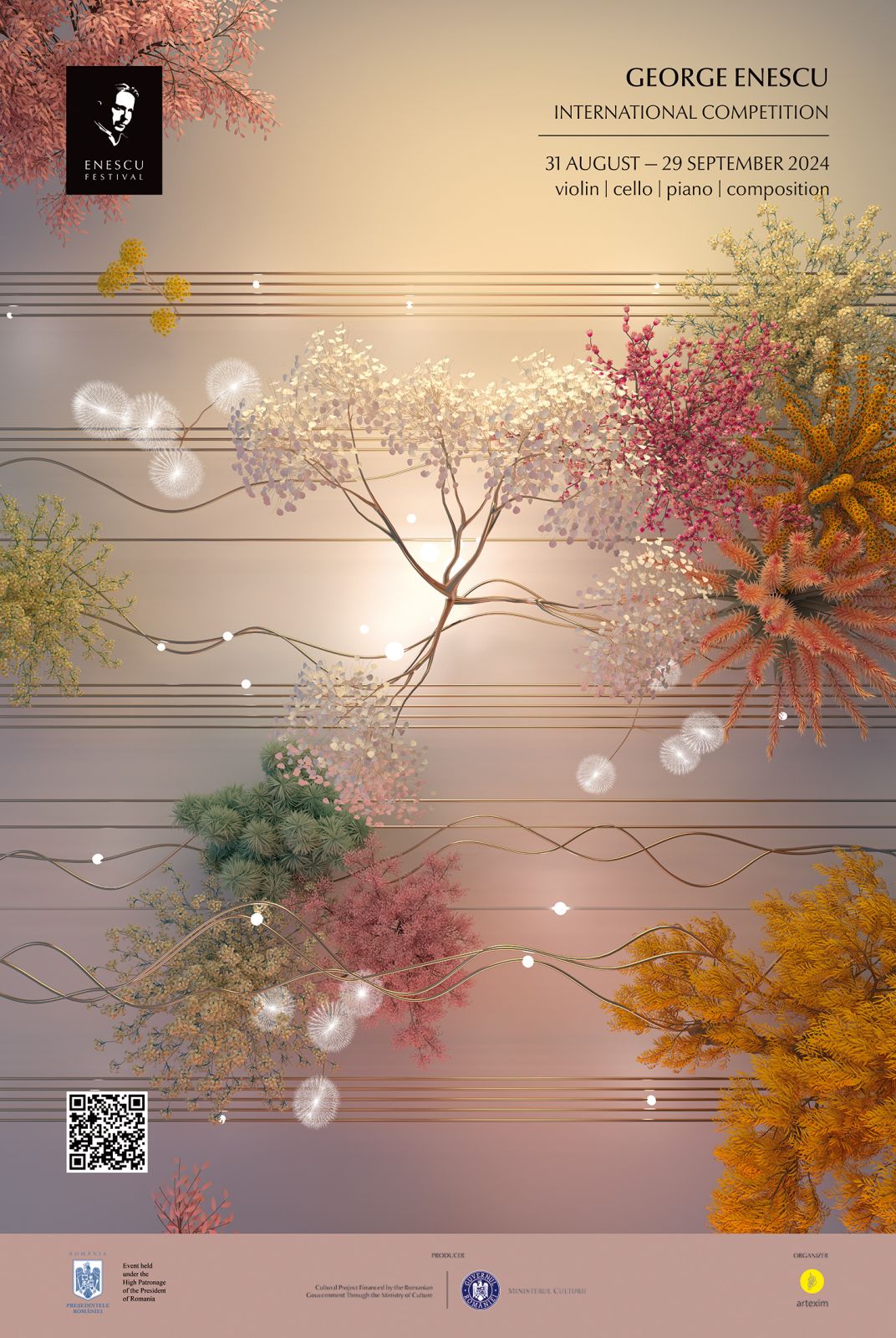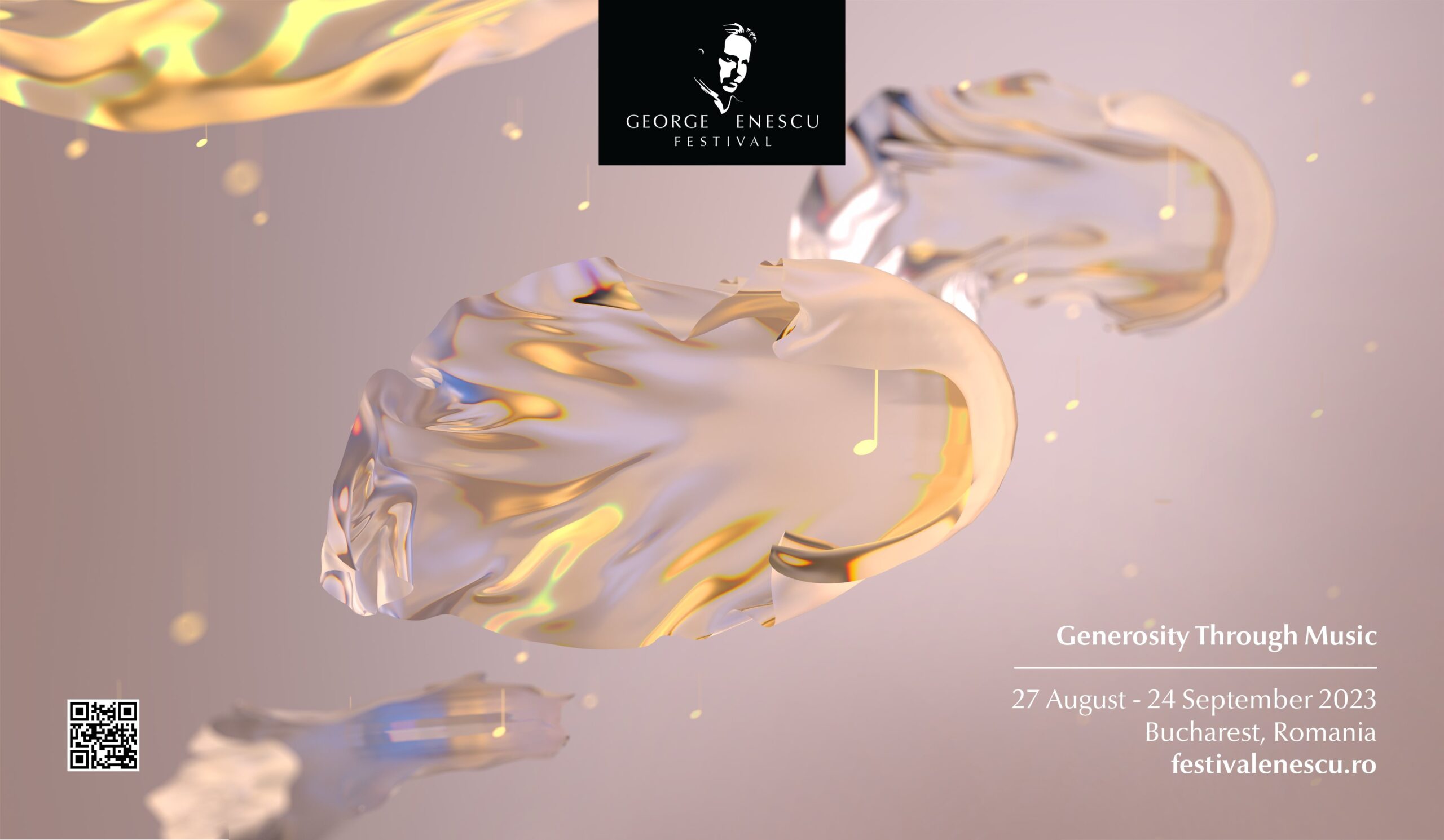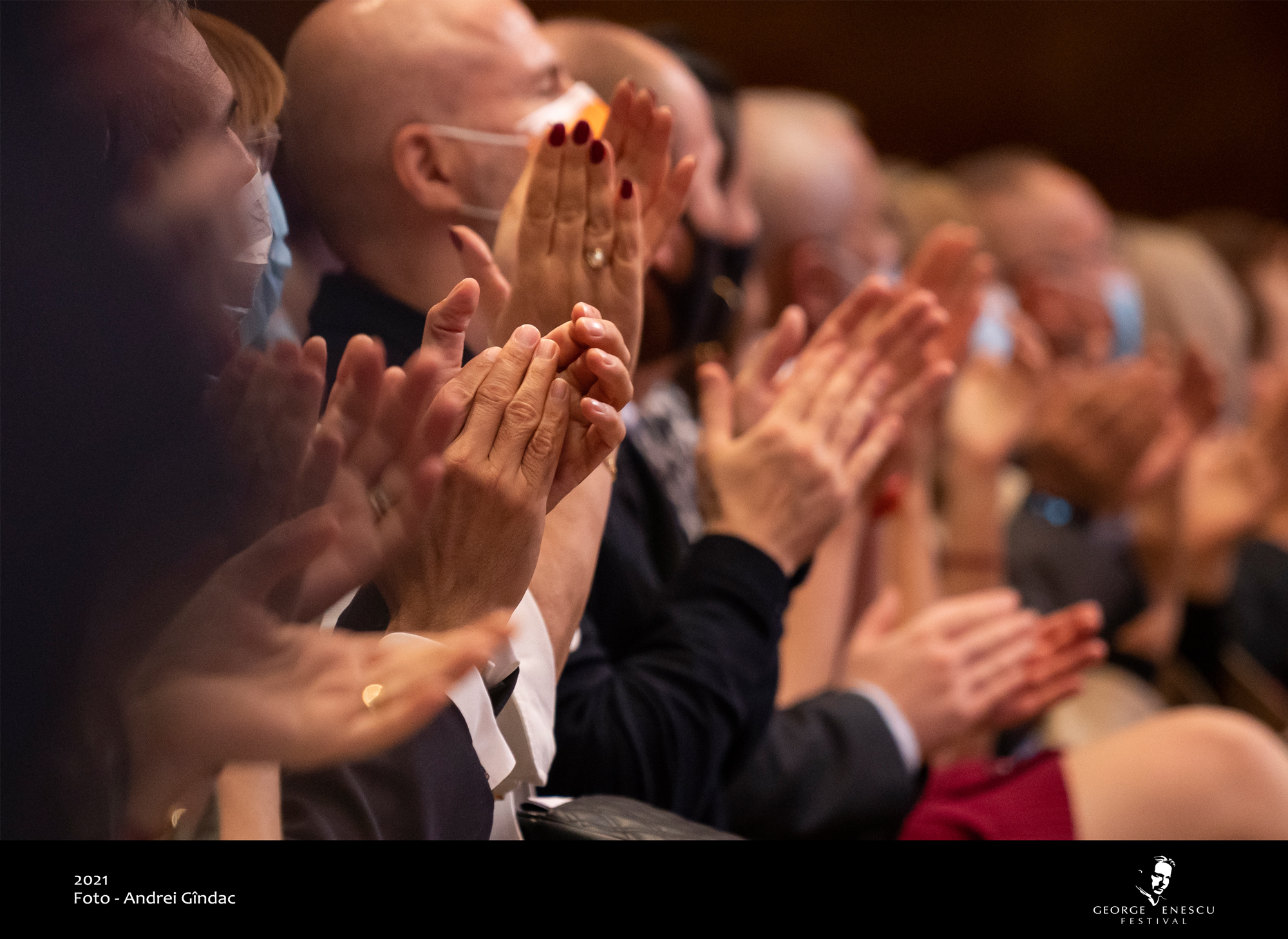Interview by Cristina Enescu
He lives in Bergen, the city whose best-known product musical is Edvard Grieg, the most famous Norwegian composer. His combination of technical mastery, power, elegance and personal touch in playing the piano have long ago won him worldwide acclaim. He is an international piano star, regularly performing with the best orchestras and at the most respected music halls worldwide, and also a passionate chamber musician with a full concerts agenda, besides also a successful and extensive discography. Yet his appearance is very down to earth and with a certain sense of enjoyable calmness that might be something quite Scandinavian.
Leif Ove Andsnes performing Grieg’s Piano concerto in A minor op 16 (one of his most important works, which highlights his interest in Norwegian folk music themes) alongside the Oslo Philharmonic Orchestra, conducted by its chief conductor Vasily Petrenko, was among the most sought-after concerts of the 2019 Enescu Festival in Bucharest. Not just because the flavour of Norwegian music being performed by Norwegian musicians had a particular appeal, but also because it was truly a state-of-the-art musical experience of one of the most beloved concertos for piano and orchestra.
Leif Ove Andsnes he has been one of the most active promoters of the Norwegian composer’s work on stage and in recordings. Grieg has drawn extensive inspiration from Norwegian traditional music, which brought it closer to the ears of the world, and also played an important role in his country’s strive to consolidate a national identity at the beginning of the XX century.
Andsnes has also lately worked on extensive projects on Beethoven and Mozart. “Beethoven Journey” was a three-year endeavour in Beethoven’s piano concertos with the Mahler Chamber Orchestra resulting in concerts, recordings and a documentary. Featuring the same orchestra, Andsnes is currently involved in a “Mozart Momentum 1785/1786”, another multi-season project dedicated to two of Amadeus’ and also music history’s most interesting years, in which he revolutionized the art of the piano.
About his performance at the Enescu Festival, his long-term relationship with Grieg and why classical music is not just a joy but a necessity particularly for young people, Leif Ove Andsnes spoke in his relaxed yet commanding manner from his home in Bergen, after the Festival.
You have a long and successful history with Grieg’s music and particularly the concert you performed in Bucharest. How come you and this concert meet again after quite some time?
This composition was sort of the break through piece at the beginning of my career, at 17-18 years for a few years I played it around the world. Then, at one point I felt it’s time to stop playing it and then for years tackled it rarely. But now I am coming back to it, approaching it with fresh ears and eyes, for a few reasons among which the 100th anniversary of the Oslo Philharmonic Orchestra. The Enescu Festival performance was the first concert in a big European tour this autumn. It felt very natural to play this Grieg concert with them because it was also this orchestra’s first performed concert a century ago.
So, in Bucharest there were Norwegian musicians playing Norwegian classical music. Do you think musicians performing works by compatriots maybe have a deeper understanding of them?
Not necessarily. Some of the best Grieg performances I personally have heard were not by Norwegian musicians, for example. On the other hand, I did grow up with Grieg, and being surrounded by a certain music does matter, it makes it more familiar. I think that’s what the audience felt in Bucharest with our Grieg concert, and it was indeed a special feeling to play it with this orchestra, who know it so well. Then again, all great composers have a musical language that is universal.
Besides being contemporary for some time at the end of the XIX. and the beginning of the XX. century and being the most famous composers of their countries, Enescu and Grieg had in common also the fact that both got inspiration from their country’s folklore music. How did Grieg approach this traditional inspiration?
He was highly influenced by the German Romantism, Mendelssohn, Schumann, Wagner, but was also very much in touch with the Norwegian independence movement. We were a colony under Denmark and then Sweden, and became independent only in 1905, two years before Grieg died. He was one of the Norwegian composers highly preoccupied by the idea of finding a national identity, so for that he drew inspiration for his compositions from the folk tunes and dances. He loved going in the rural parts of Norway and listening to people sing.
As for Enescu, I think it’s very interesting what has happened with his music lately. I feel more and more musicians outside Romania are becoming aware of the richness and diversity of his music, and it seems to be played increasingly.
You have cited one other Romanian musician among your biggest inspirations, pianist and composer Dinu Lipatti. What drew you to him?
I don’t know so much of his music but I’ve been a huge admirer of his as a pianist. It was a big tragedy that he died so early, but we have incredible recordings of him as a performer. He was extraordinary, every recording of his is so powerful, full of vitality and so natural too. You feel that this is how that music has to be. He simply showed the music in its pure form. I admire that tremendously. He had an unbelievable understanding of what the fingers on the piano can create. Lipatti was the most complete pianist I can think of.
You have also been described as a pianist featuring amazing technique and also great creativity. In the “recipe” of making a great pianist, how do you see the combination between hard work and technical mastery, and certain personality traits?
If I only knew… Of course, first there’s a lot of work, you have to start early in childhood. But besides technique one must work on their musicality, they go hand in hand. Now there are so many musicians with high accuracy and technique, and the ones surviving are those who give the audience the feeling they have something special to say. That’s what people are left with after a concert, perhaps, the feeling that the musicians were talking about some of their own feelings. For me, a true artist is the one who can give a musical voice to peoples’ feelings. That’s very personal, not everybody can do that. When I play, I feel I’m telling stories, similarly to an actor on stage.
Almost every time you perform it’s with a different voice, that is piano, besides different orchestras, conductors and halls. That surely requires a lot of technical but also personal adjustments. How do you manage that?
It is challenging. I wish I could travel the world with a great piano and a great piano technician, as I like to call them. You know, after a while in this profession you discover that just as important as the piano is actually the piano technician. Fortunately, at the Enescu Festival there was a very good piano technician. But unfortunately, that doesn’t always happen, yet you have to do your best in trying to communicate with the piano. Sometimes a piano doesn’t want to communicate with me, other times it’s like the piano has such a personality that it actually shows me how to play a certain musical phrase.
Could you explain that about the personality of a piano to us, laymen?
That’s why I call those people not piano tuners but piano technicians, because the best of them can really change the tune of a piano. It’s not just about the sound but also the feeling, the mechanics, the action of the piano. When you feel that a piano is perfectly adjusted, has a sound that is somehow speaking, then you feel like you are in a conversation with somebody who understands. I don’t know how else to explain it. Sometimes the piano helps me understand how I can shape certain parts of the music, it’s not always just me telling the piano what I want to do. I can try to do things my way and then at times the piano shows me a different way.
Pianos can be very different from one another. I was recently in Chicago and there was a not highly brilliant piano, but the sound was so beautiful and deep. Another time I played the same piece elsewhere on a well-tuned piano, maybe not so intimate in sound but with great potency. Obviously, those two performances were very different one from the other because of the different pianos.
That’s why, a hugely important thing in my career has been to build an international network of piano technicians that I trust. There are not so many around the world; in Norway I’d say there are maybe two good ones.
Coming back to the Enescu Festival, one striking thing about the audience was that the average age was quite high. How is this elsewhere, and how could young people become more attracted to discovering classical music?
It’s a complicated question. Are there today more older people in the audience than in the past? I’m not sure. For many decades, the average classical music concert goer’s age has been 50-55. It’s quite natural, at that age you have more time and finances. On the other hand, another reality is that many young people don’t get proper musical education.
To listen to classical music is easy, but it takes time to get to appreciate. Human beings deserve the chance to learn how to listen to music, how to look at a painting. Art, music are a very important part of life, they tell us a lot about who we are. They are just as important as mathematics, physics or grammar, yet currently education about arts and music is a disaster. Fortunately, there are a lot of young people who play instruments nowadays. The hope is that we, musicians, are able to show them how great this music is.
You are also involved in the musical education of young people, being a permanent mentor in the Crescendo program at the Bergen International Festival, in which selected young musicians work intensively with experienced artists.
Indeed, I am part of several educational programs, which brings me in contact with the new generation of musicians, I want to share my experience, but I personally also need that contact.
How is classical music education of value to young people, in times when countless other types of entertainment are so easily accessible?
Well classical music has a complexity that is part of life and of who we are. I believe that great art and music can help us develop as human beings. When you watch or play in an orchestra you see that there is a kind of democracy there, somebody does a solo and the others listen, then they all collaborate to make something together. This is how things should also work in society, at times you play, at times you listen. Plus, each classical music piece is about a variety of emotions that we all have inside.
